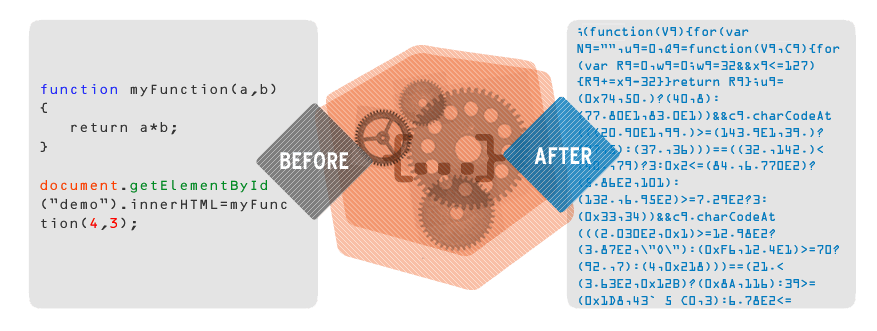I’m all for open source and freely sharing code, but there are also occasions when it’s necessary to hide some of the mechanics behind a web-based application. That’s where JScrambler comes in, a Portuguese startup that’s launching version 3 of its service today. JScrambler 3 allows developers to obfuscate their source code for mobile and desktop web apps so it’s almost impossible to read. The web-based service, which offers both free and paid plans, takes either individual files or your whole project and makes sure that it becomes much harder to read and maintain by a non-authorized third party.
So far, the JScrambler team says, it has processed over 120 million lines of code and has users in 106 countries. Pedro Fortuna, the co-founder and CTO of AuditMark, the company behind JScrambler, believes his service will be especially appealing to Flash developers who are now moving to HTML5 and JavaScript.
“Although many Flash developers acknowledge that it is an easy to reverse-engineer language, the psychological effect of being a compiled language makes many of them more comfortable.” As developers move to writing applications for the mobile web and away from Flash, products like JScrambler 3 will likely just gain in importance for many developers who aren’t comfortable with the idea that their code, which is executed on the user’s machine, is essentially sent in clear text.
According to the JScrambler team, developers may want to use its service to “discourage code theft and reuse, hide algorithms, enforce license agreements, and to add an extra layer of security.”
Here is what running code through the service looks like in practice:
 There are obviously quite a few other other JavaScript obfuscators and similar tools on the market, but JScrambler does seem to offer the most complete solution. Out of the box, it should work with most of the standard libraries, too, including Ember.js, Cake.js, fabric.js, Dojo GFX and SproutCore.
There are obviously quite a few other other JavaScript obfuscators and similar tools on the market, but JScrambler does seem to offer the most complete solution. Out of the box, it should work with most of the standard libraries, too, including Ember.js, Cake.js, fabric.js, Dojo GFX and SproutCore.
Today’s release introduces a number of new code transformations, as well as a new subscription package for professional users who need to support for mobile and desktop apps, and a general redesign of the service’s user interface and documentation. Besides its web-based service (and an API for hooking into it), JScrambler now also offers enterprise users the ability to run the service on their own servers.
